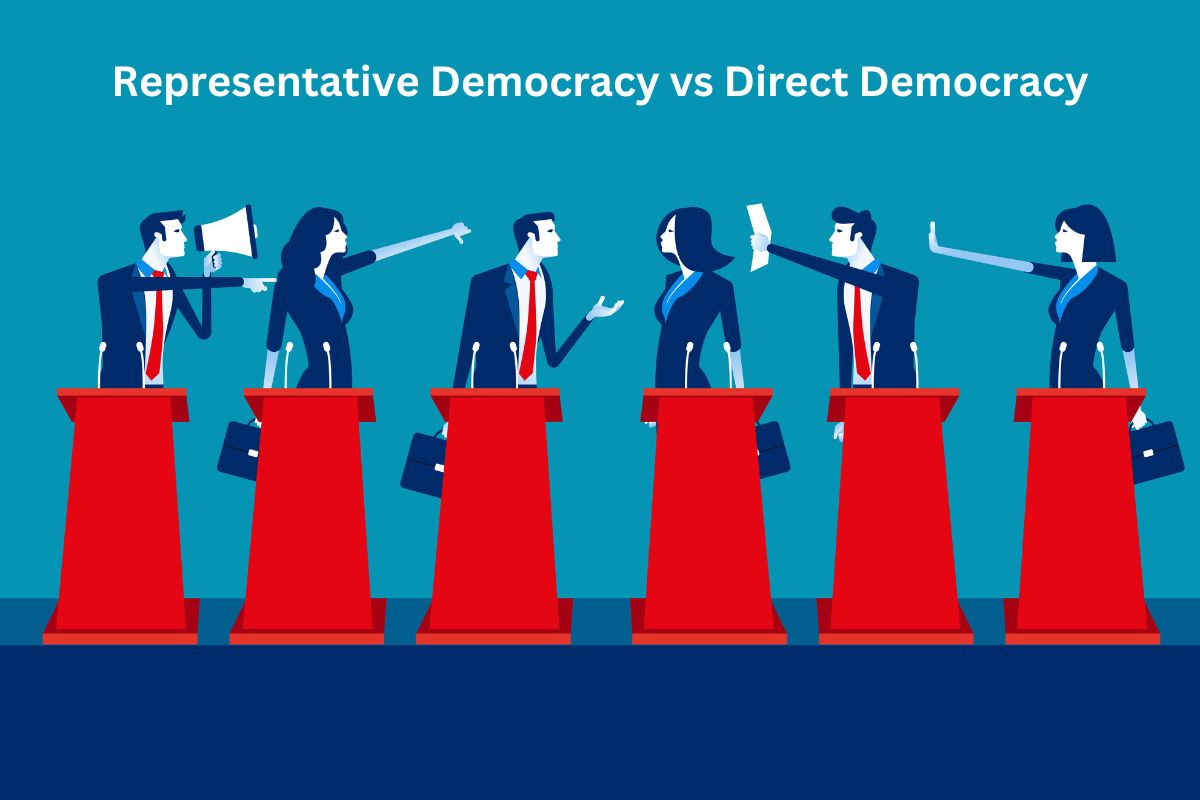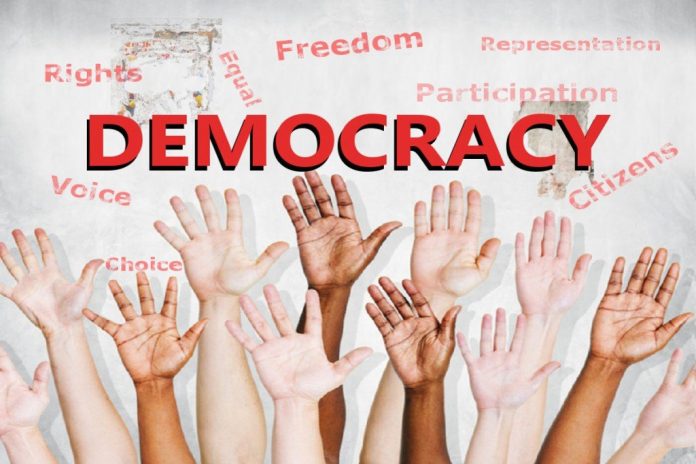What Are the 4 Types of Democracy
Democracy stands as a cornerstone of modern governance, embodying principles of equality, participation, and representation. Within the realm of democratic systems, various models exist, each reflecting nuanced approaches to governance and citizen involvement. Understanding the diversity of democratic forms is paramount to appreciating the complexity and adaptability of democratic principles across different societies.
Introduction to Democracy
Democracy, derived from the Greek words “demos” (people) and “kratos” (rule), signifies a system where power lies with the people. It emphasizes the participation of citizens in decision-making processes, ensuring government accountability and safeguarding individual liberties. The essence of democracy extends beyond mere electoral processes; it encapsulates the fundamental rights and freedoms inherent to human dignity and collective welfare. Read about What are the 4 Types of Politics
Types of Democracy
Direct Democracy
Direct democracy embodies the direct involvement of citizens in decision-making processes. It allows individuals to participate actively in policy formulation, bypassing intermediaries. This form of democracy finds expression in mechanisms such as referendums and town hall meetings, enabling citizens to voice opinions and shape legislative outcomes directly. Read a Complete Article on What is Direct Democracy
Representative Democracy
Representative democracy delegates authority to elected representatives who act on behalf of constituents. Through periodic elections, citizens confer power to representatives, entrusting them with the task of governance and policymaking. Representative democracy fosters the consolidation of diverse interests into cohesive platforms, facilitating collective decision-making and legislative action.

Parliamentary Democracy
Parliamentary democracy integrates the executive and legislative functions within a single institution—the parliament. This system, prevalent in many European nations, establishes a fusion of powers, where the executive branch emerges from the parliamentary majority. Parliamentary democracy emphasizes the principle of collective responsibility, holding the government accountable to the legislature and, by extension, the electorate. Discover about What are the 16 Concepts of Global Politics
Presidential Democracy
Presidential democracy features a clear separation of powers between the executive and legislative branches. The president, elected independently of the legislature, serves as the chief executive, wielding significant authority over policymaking and governance. This system, prominent in the United States and several Latin American countries, emphasizes checks and balances to prevent the concentration of power and safeguard democratic principles.
Characteristics of Each Type
- Direct Democracy: Prioritizes citizen participation and grassroots decision-making.
- Representative Democracy: Empowers elected representatives to enact laws and policies on behalf of constituents.
- Parliamentary Democracy: Blurs the distinction between the executive and legislative branches, fostering consensus-based governance.
- Presidential Democracy: Maintains a clear separation of powers, ensuring checks and balances among branches of government.
Advantages and Disadvantages
- Direct Democracy: Promotes direct citizen engagement but may lead to inefficiency and populism.
- Representative Democracy: Facilitates efficient decision-making but risks detachment between representatives and constituents.
- Parliamentary Democracy: Ensures swift legislative action but may result in executive dominance over the legislature.
- Presidential Democracy: Provides strong executive leadership but can foster gridlock and partisan politics.
Examples of Countries
- Direct Democracy: Switzerland
- Representative Democracy: United Kingdom
- Parliamentary Democracy: Germany
- Presidential Democracy: United States
Comparative Analysis
Each type of democracy presents unique strengths and challenges, shaped by historical, cultural, and institutional contexts. While direct democracy promotes grassroots empowerment, representative democracy prioritizes efficient governance. Parliamentary and presidential systems, on the other hand, embody distinct approaches to institutional design and executive-legislative relations.

Conclusion
The diversity of democratic models reflects the adaptive capacity of democratic principles to accommodate varied societal needs and preferences. By understanding the nuances of each type of democracy, societies can tailor governance structures to foster inclusive participation, ensure accountability, and uphold the principles of freedom and justice.
FAQs
- Which type of democracy is most common worldwide?
- Representative democracy remains the most prevalent form of governance globally, reflecting its adaptability and stability.
- How do parliamentary and presidential democracies differ in terms of executive authority?
- In parliamentary democracies, the executive emerges from the legislative body, while in presidential democracies, the executive is elected separately and holds significant independent authority.
- What role do political parties play in different types of democracies?
- Political parties serve as key actors in democratic systems, articulating diverse interests and ideologies and facilitating the functioning of electoral and legislative processes.
- How do citizens participate in direct democracy?
- Citizens engage in direct democracy through mechanisms such as referendums, initiatives, and town hall meetings, where they directly influence policy decisions.
- Can a country adopt multiple types of democracy simultaneously?
- While rare, some countries incorporate elements of multiple democratic models, blending parliamentary and presidential features to suit their unique governance needs.







